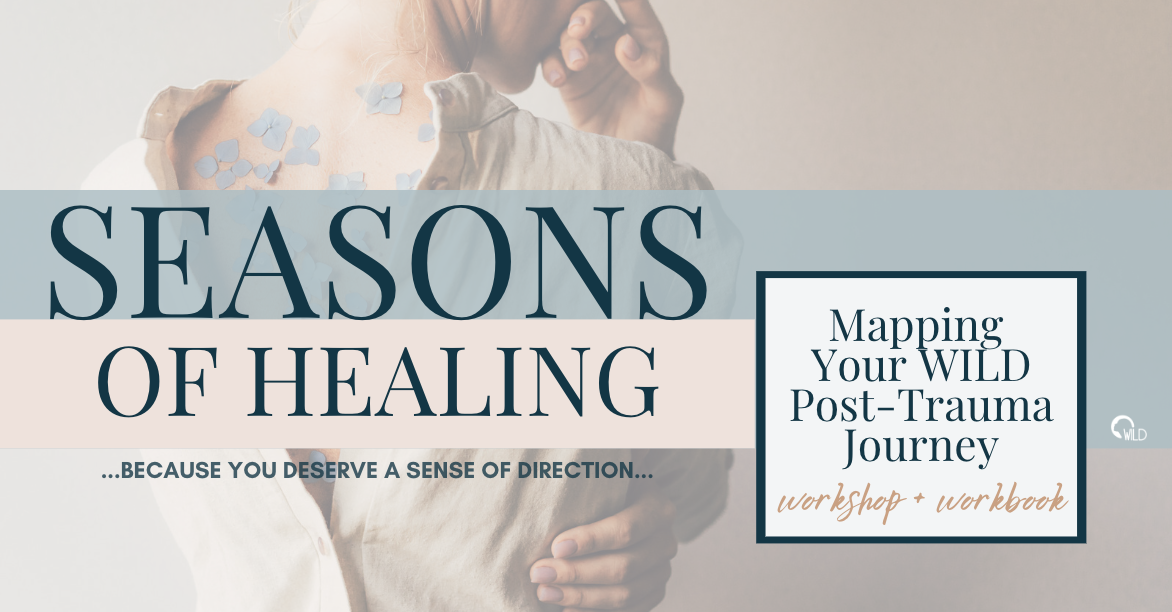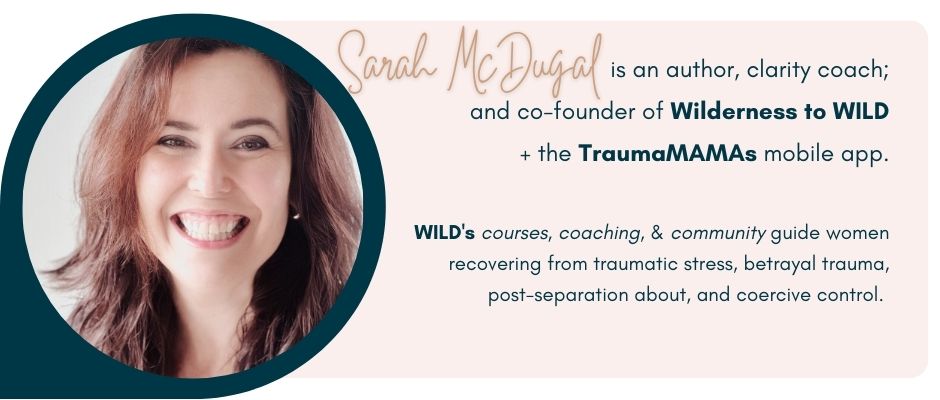Never miss a post.
How Did I Miss the Red Flags? Why You Fell for an Abuser Even if You're Smart
- Sarah McDugal
In his book, Talking To Strangers: What We Should Know about the People We Don't Know, Malcolm Gladwell talks about why we miss red flags...
I'm going to come back to the distinction between some doubts and enough doubts, because I think that it's crucial.
Just think about how many times you have criticized someone else in hindsight for their failure to spot a liar. You tell yourself, “You should have known. There were all kinds of red flags. You had doubts.” Levine would say that that's the wrong way to think about the problem.
The right question is, "Were there enough red flags to push you over the threshold of belief?" If there weren't, then by defaulting to truth, you were only being human.
Maybe you weren't berating other people for this.
Maybe you were berating yourself for this.
Maybe you have wrestled with why you didn't see the red flags the first time around.
How did you miss all the signs?
How did you become so, profoundly, incredibly duped?
Stop berating yourself for trusting.
Stop telling yourself how stupid and gullible you were.
Start asking "Were there enough red flags?"
Conscientious humans tend to default to the belief that other people (even evil people) are telling the truth. As a result, it often takes an awful lot of evidence to make you finally realize that you're being deceived.
Good, kind, safe people don't want to live in deception. We don't want to admit that it's possible that our reality might be a lie. Facing this truth requires us to acknowledge our own inability to accurately discern good from evil.
It is far more comfortable to believe that evil wears the unmistakable face of a monster. We do not want to accept that evil might dwell insidiously entwined and unchecked, thriving without notice in our comfortable circles of trust.
Go-to support hub for women who are ready to thrive after surviving abuse or betrayal — with super affordable, trauma-sensitive group coaching + community.
People default to our own baseline.
A person who is generally a truth-teller, will likely default to the belief that other people are also telling the truth.
A person who is generally a user, a deceiver, someone who comfortably weaves lies, will often default to the belief that everyone else is lying to them.
So, when other people can't see the abuse that you've gone through, or won't recognize that trauma being perpetrated around them, remember that there was likely a time when you too had not yet seen enough red flags to cross the threshold of belief. It may be helpful to hold compassion for the fact that others have not yet leaped off the cliff of belief -- because they are defaulting (however naively) to a baseline assumption of truthfulness and goodness in those around them.
Not everyone who is slow to believe, is maliciously refusing to believe that evil is evil.
Often, well-intentioned individuals ignore abuse rather innocently, because they lack the education, the awareness, the experience. Just like it may have taken you months or years of living in the fog before you experienced a dawning of recognition... you may need to give others enough time to be persuaded by the red flags, before they will recognize the evil of a situation. When you're irritated with someone who hasn't figured it out yet, remember that there was a time when the red flags weren't enough to push you over the threshold of belief yet either.
A liar of above-average intelligence can weave devastating -- but convincing -- loops of falsehood around a truth-teller who holds above-average trust.
If you're realizing that you have tended to refuse to acknowledge red flags because you can't imagine possibly doing something so awful -- you're projecting your good conscience onto people who don't have one.
This is not the fault of the person who is telling the truth.
But it is the truth-teller's responsibility to become wise, as well as remaining harmless. It is our responsibility to learn how to recognize patterns of abusive behavior and take the red flags seriously far sooner.
As a survivor, you shouldn't beat yourself up with, “I should have known.”
Most likely your experience was the same. You missed red flags, even though you may have noticed some of them, simply because there weren't enough of them.
And that... just makes you human.
FREE Support Group>>WILD TraumaMamas: Because Momming After Trauma isn't for the Faint of Heart
Which season of healing are you in right now?

Do You Know...
Which season of healing are you living through right now?
What does your mind & body need most in this particular season?
Do you know the four growth pillars of healing?
Have you experienced the four mindset shifts that lead to wholeness?
"Seasons of Healing" Launches You on the Path to:
reclaim your voice from the silence.
embrace your identity as a survivor, not a victim.
recognize patterns of harm.
pierce the fog of cognitive dissonance.
live in radical commitment to truth.
take back control of your choices.
find purpose in the pain.
-
build new patterns.
(Or join the SCOOP and get any workshop for 15% OFF!)
Do you feel...
anxious, frustrated, or brain-fogged?
scared you won't make it as a solo mom?
worried about how to heal when you still have to co-parent?
You need the FREE TraumaMAMAs App!! Access tools to help you heal after abuse, like:
global hotline and helpline links,
free quizzes and assessments,
IS THIS ABUSE? free online course
bonus checklists, action plans, and wellness workshops — all on your phone!
Want more articles like this?
Get new posts straight to your inbox!


